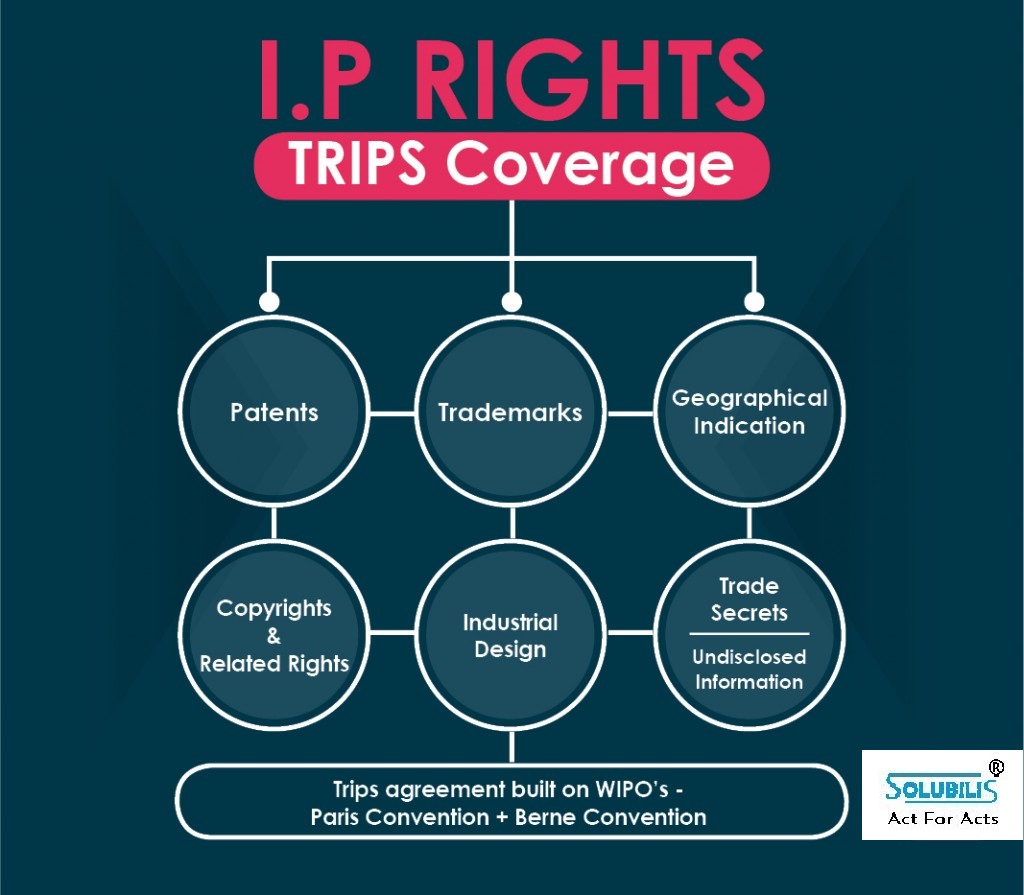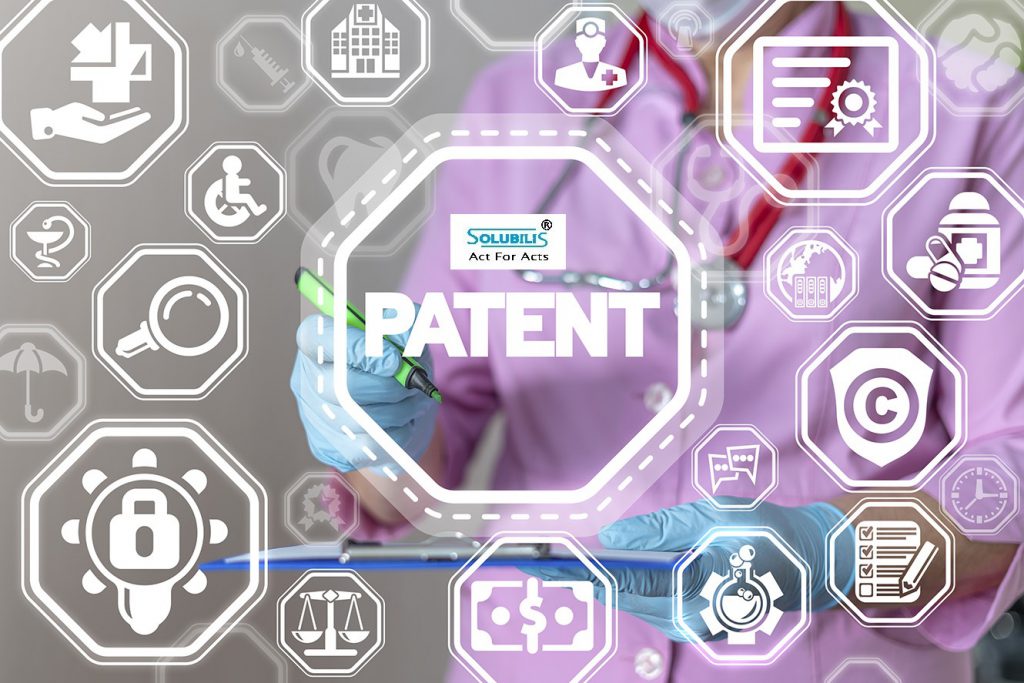Challenges faced within the protection and enforcement of patent registration in India
Challenges faced within the protection and enforcement of patent registration in India
India, as a member of the globe Trade Organization and person to the Agreement on Trade-Related Aspects of Intellectual Property Rights (TRIPS) is obligated to align its intellectual property rights laws with the trips agreement. The challenges come not solely from making the laws however additionally their implementation considering the Indian government needs to strike a balance between the needs of the country’s citizens and the rights of patent registration holders. the problem has become all the additional sensitive considering a bulk of patent applications in India are filed by foreign firms. As AN example, the data provided by the Indian IP office in its annual report of 2017-2018 shows the applications filed by foreign candidates were quite double (32,304) compared to those by Indian residents (15,550). Here we are going to see Challenges faced within the protection and enforcement of patent registration in India to make you understand in a very clear manner.

In the last 5 years, this government, led by Prime Minister Narendra Modi, has striven hard to create perceptible amendment within the IP landscape. Beginning with rolling out National holding Rights policy and establishing a Cell for IPR Promotion and Management (CIPAM) to figure towards accomplishing IP policy objectives. additionally to clear backlog of patent and trademark applications, the govt. has undertaken a huge conversion exercise, recruiting an outsized variety of examiners resulting in an exponential increase in the examination and grant of patent registration. To encourage start-ups to hunt protection of their IP and to file patent applications, facilitators are appointed. Despite government efforts, international companies still push for better protection of their IP. The expectations seem to be summarised in a very Special 301 Report issued by The workplace of the u. s. Trade Representative (USTR) putting India on the “priority watch list”. The report mentions “Over the past year, India took steps to deal with intellectual property (IP) challenges and promote IP protection and enforcement. However, several of the actions haven’t nonetheless translated into concrete benefits for innovators and creators, and long-standing deficiencies persist. India remains one of the world’s most challenging major economies with respect to patent protection and enforcement of IP”.
The post identifies a few of the challenges and up to date positive changes seen within the protection and the enforcement of patent registration in India.
Challenges in protection/ grant of patent rights in India
Apart from the worldwide patentability necessities for inventions to possess novelty, inventive step and industrial relevance, the Indian patent act has specific provisions, covered below Section three, that creates the patentability of an invention relating to subject material appreciate a) derivatives of a pharmaceutical drug; b) patentability of stem cells; c) diagnostic etc. non-patentable subject matter. As a result, these inventions face a better threshold of examination and scrutiny. although tips in relevance the patentability of software, biotech inventions and pharmaceutical inventions are issued by the Indian Patent Office, the sensible challenges printed below still be long-faced by patent registration holders.
Computer-related inventions
Section 3(k) bars patentability of computer programs in and of itself or algorithms. This objection exists as default for all computer-related inventions. the choice in such cases is not according to completely different controllers (at the patent office) forming their own views in terms of the need of hardware and if it should meet the patentability criteria.
Patentability of derivatives of pharmaceutical substances
Section 3(d) restricts patentability of derivative/s of a pharmaceutical compound. A derivative should show important distinction in therapeutic effectuality with respect to the parent registration compound for overcoming the barrier of Section 3(d). Based on the reasons and choices of the courts, the Section 3(d) objection ought to theoretically be raised just for derivatives of pharmaceutical substances. However, the objection is invariably raised for all applications relating to pharmaceutical drugs even within the case of innovator compounds.
Patentability within the life sciences/ biotechnology sector
The life sciences sector faces hurdles in terms of patentability of in-vitro diagnostic ways and kits as a result of they fall at intervals the class of diagnostic/treatment ways. Further, isolated polymer sequences are the topic of objections for not satisfying the novelty demand. Thus, the artificer in such cases faces problems in convincing the controller of the patentability of the subject matter.
Positive developments

The Annual Report (2017-2018) issued by the Indian Patent Office highlights:
a) increase of 5.3% in filing as compared to the previous year;
b) increase in examination rate by 108.2%;
c) number of patent registrations granted inflated by 32.5%;
d) domestic filing of patent applications inflated to thirty two.5% as compared to 29.2% in 2016-17.
Challenges in enforcement of patent rights in India
Patent rights in India is implemented through civil courts. However, there are not any special ip courts found out to deal with cases.
Backlog and time for final decision
The basic challenge in the enforcement of patent rights is that the time it takes for the court to form a final judgment. A patent causal unremarkably takes some 5 to seven years to be finally determined once trial, if contested by the opposite party. The Commercial Courts Act helps to hurry up the method with case management hearings and time certain trials. However, the backlog of cases at the court and shortage of judicial officers have a control on the time it takes for a final decision on a case.
Subject matter experts
Section 115 of the Indian Patent Act provides for appointment of a scientific advisor to help the courts in providing opinions on technical aspects of a matter. The provision has not been oftentimes created use of by the courts. The appointment of a technical knowledgeable in infringement suits won’t solely facilitate to boost the quality of the choice however additionally cut back the fundamental quantity for final judgment.
Positive developments
i) Recent shifts in judicial thinking counsel that courts have started granting interim injunctions for patent matters. This wasn’t common within the past, with courts taking the read that patent matters involve complexness and therefore need full trial. within the court thought-about interim orders in infringement suits as the “need of the hour” and granted the injunction in this case. The court observed: “the life of a patent registration is limited and further considering the time taken in determination, whether or not there’s infringement of patent, non grant of interim injunction usually leads to, the litigator, albeit ultimately found to possess infringed the patent, until the aforesaid determination, continued to reap fruits of infringement.”
ii) An interim injunction was granted to the litigant on the idea that the defendants were yet to launch the merchandise. The court observed: “The defendants have not launched the merchandise within the market, no loss or irreparable damage are going to be caused to company if they’re restrained from doing activities that they need not nevertheless commenced.